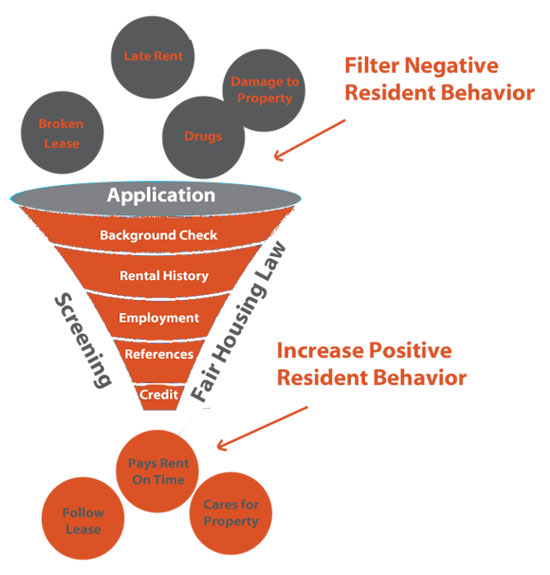When it comes to owning and managing rental properties, nothing is more important than finding and retaining quality tenants. Now, this is often easier said than done. Many current prospective landlords are often frustrated by poor tenants that violate their lease. These violations can range from damaged property to failing to pay rent on time, all of which create a serious headache for landlords and property managers alike. However, there are a series of steps that you can take to make sure you are attracting quality tenants to your property. Follow them, and you will realize less turnover, consistent cash flows, and lower maintenance fees, all of which equate to a higher net operating income. Here we go.
1. Employment Verification: Not only do you want tenants that have a stable income, but it is best if your tenants have an income that is at least triple what the asking rent is. This ensures that tenants are able to cover rent, as well as pay additional living expenses and utilities.
2. Credit Check: A prospective tenant’s credit score will often indicate how reliable that person is when it comes to paying their expenses on time. Score qualifications will depend on the type of rental property. However, as an added incentive landlords can offer move in specials such as a reduced security deposit to tenants that have higher credit scores. Take caution, if you offer your rental property to someone with a lower credit score, be sure to increase the move-in deposit, or make sure they have a co-signer in order to give yourself additional coverage.
3. Background Check: a complete background check is paramount.
4. Zero Tolerance: No evictions. Ever. If the prospective tenant owes money in utilities or to other rental agencies, they should be required to pay up the past due before re-renting.
5. Past Landlord referral: a good rule of thumb here is to make sure that you are able to verify the past two years of the applicant’s rental history. Make sure no red flags appear. Once again, concessions can be made, but these should only be made with a co-signer or higher deposit.
6. Fair Housing: landlords and property managers need to be mindful of fair housing laws when screening tenants. These laws make it illegal to screen based on race or color, national origin, religion, sex, family status, or disability. There should be no exceptions to these rules. Some situations oblige the landlord/ property manager to make reasonable accommodations for people with disabilities.
7. No Guarantees: Make sure you let your tenants know that there are no guarantees, and that it is often a first come first serve situation. The first that applies and gets approved, pays the security deposit, and signs the lease gets the property. There is no such thing as a verbal agreement, only a signed contract.
If you don’t think you have the time or resources to effectively screen quality tenants for your rental property, seek the assistance of a local professional property management company.
Let us know if we missed anything in the comments below.

